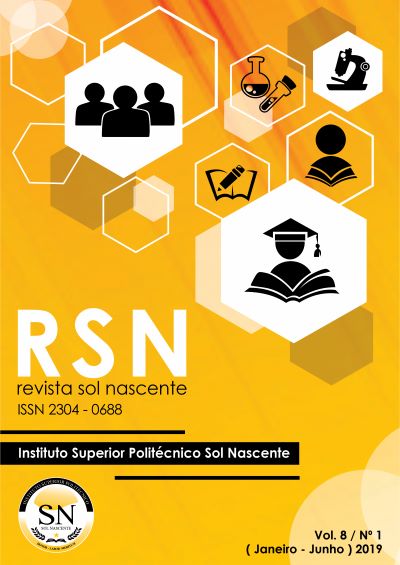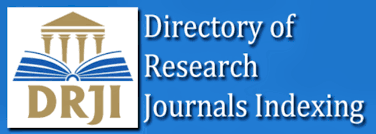Law on political parties and party system in Angola
Keywords:
Political system, party system, party law, multipartyism, AngolaAbstract
The scope of the article is linked to the analysis of the Angolan party system in order to infer the impacts of the regulation of political parties. In order to understand the level of permeability of parties in the party system in Angola. We start from the analytical and conceptual discussion of political parties, party systems, the legal regimes of parties and their spectrum. It was concluded that applying the classification model of the specific laws of political parties in Angola, we are faced with a protective model of restricted measures, with the aim of reducing the number of political parties in the system. For methodological purposes, the article is informed by the bibliography on the history and legislative framework concerning the parties in Angola. So that the work is not merely descriptive, a bibliographical, documental and theoretical analysis is carried out using the concepts – consolidated in the literature – of parties and the system of parties.
References
Amaral, D. F. (2014). Uma introdução à política. Lisboa: Bertrand.
Andrade, M. P., Boio, D., & Kutúmua, M. (2014). Comportamento eleitoral dos jovens angolanos nas eleições de 2012. Huambo: CISN.
CNE. (2012). Compêndio da legislação eleitoral. Luanda: Imprensa Nacional.
Constituição da República de Angola. (2014). Luanda: Where Angola.
Correia, A., & Sousa, B. (1996). Angola história constitucional. Coimbra: Livraria Almedina.
Duverger, M. (1985). Os grandes sistemas políticos. Coimbra: Ed. Almedina.
Fernandes, A. J. (2010). Introdução à ciência política: teorias, métodos e temáticas. Porto: Porto Editora.
Hermet, G., Badie, B., Birnaum , P., & Braud, P. (2013). Dicionário de ciência política e das instituições políticas. Lisboa: Escolar Editora.
José, G. M. (2012). Congruência Ideológica e Política em Angola: Análise comparativa dos Deputados eleitos para Assembleia Nacional e respectivos eleitores (Dissertação de Mestrado, ISCTE-Instituto Universitário de Lisboa). Fonte: https://repositorio.iscte-iul.pt/bitstream/10071/5669/1/Congru%C3%AAncia%20Ideol%C3%B3gica%20e%20Pol%C3%ADtica%20em%20Angola_GMJ.pdf
Lavroff, D. (1975). Os partidos políticos da África negra. Lisboa: Bertrand.
Machado, J. E., Costa, P. N., & Hilário, E. C. (2013). Direito constitucional angolano (2ª ed.). Coimbra: Coimbra Editora.
Mainwaring, S., & Torcal, M. (2005). Teoria e institucionalização dos sistemas partidários após a terceira onda de democratização. Opinião Pública, XI(2), pp. 249-286. Fonte: http://www.scielo.br/pdf/op/v11n2/26416.pdf
Mayer, R. (2015). A regulação dos partidos políticos do Cone Sul. Leviathan (10), pp. 41-58. doi:https://doi.org/10.11606/issn.2237-4485.lev.2015.132367
Pasquino, G. (2010). Curso de Ciência Política. Lisboa: Principia.
Della Porta, D. (2003). Introdução à ciência Política. Lisboa: Editorial Estampa.
Sanches, E. R. (2010). Institucionalização dos Sistemas Partidários na África Lusófona–O caso cabo-verdiano. Cadernos de Estudos Africanos(20), pp. 111-138. Fonte: https://journals.openedition.org/cea/161
Sanches, E. R. (2015). " Novo contexto mas velha política": a evolução do sistema partidário moçambicano entre 1994-2014. " Espaço Lusófono"(1974/2014): Trajectórias Económicas e Políticas: Textos, pp. 34-83. Fonte: http://repositorio.ul.pt/handle/10451/20679
Sanches, E. R. (2016). O desenvolvimento dos sistemas partidários de Cabo Verde e São Tomé e Príncipe em perspetiva comparada (1991-2014). Anuário de Direito de São Tomé e Príncipe (2015), pp. 121-146. Fonte: http://hdl.handle.net/10451/25347
Downloads
Published
How to Cite
Issue
Section
License
Copyright (c) 2021 Cristhoffer Antunes Kapuwa

This work is licensed under a Creative Commons Attribution-NonCommercial-ShareAlike 4.0 International License.


























